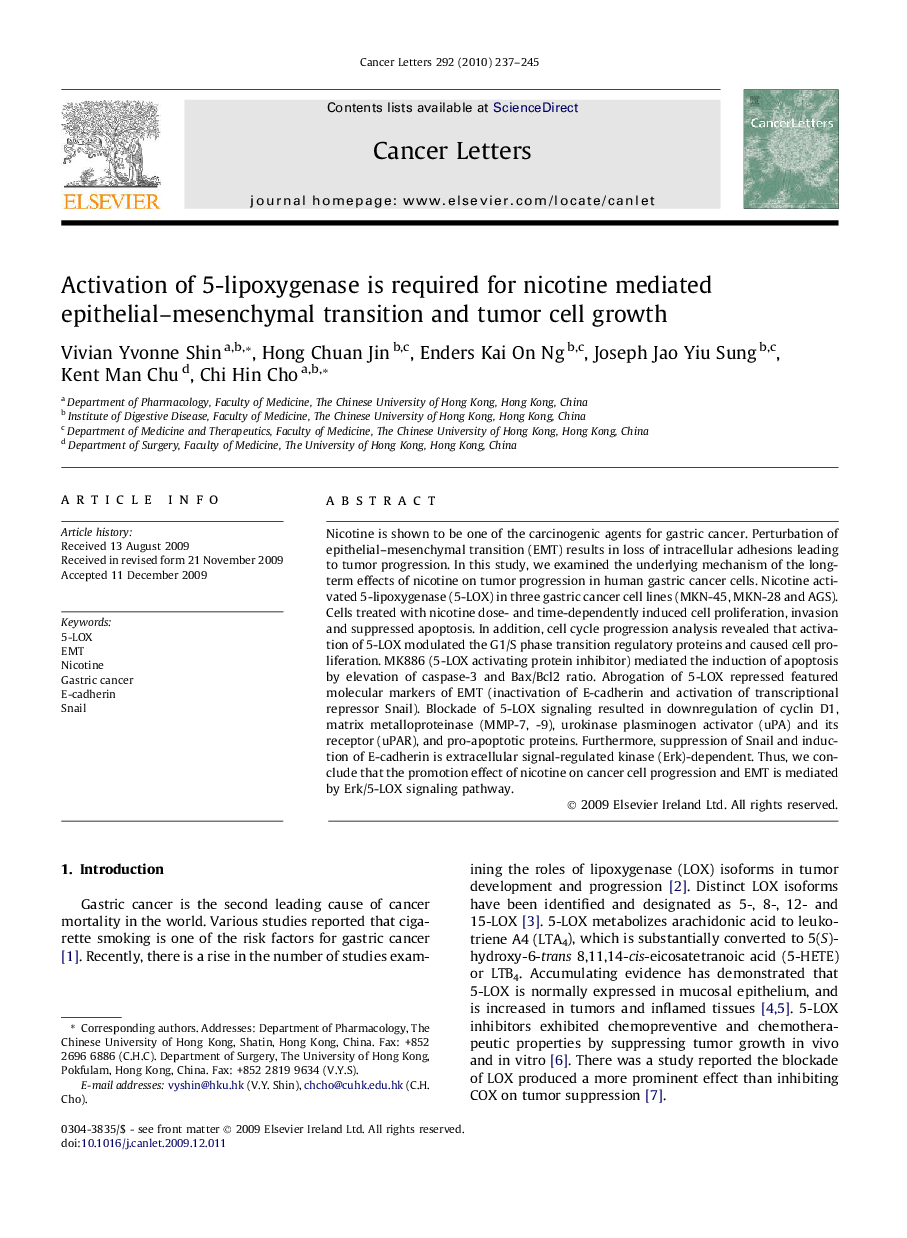| Article ID | Journal | Published Year | Pages | File Type |
|---|---|---|---|---|
| 2114002 | Cancer Letters | 2010 | 9 Pages |
Nicotine is shown to be one of the carcinogenic agents for gastric cancer. Perturbation of epithelial–mesenchymal transition (EMT) results in loss of intracellular adhesions leading to tumor progression. In this study, we examined the underlying mechanism of the long-term effects of nicotine on tumor progression in human gastric cancer cells. Nicotine activated 5-lipoxygenase (5-LOX) in three gastric cancer cell lines (MKN-45, MKN-28 and AGS). Cells treated with nicotine dose- and time-dependently induced cell proliferation, invasion and suppressed apoptosis. In addition, cell cycle progression analysis revealed that activation of 5-LOX modulated the G1/S phase transition regulatory proteins and caused cell proliferation. MK886 (5-LOX activating protein inhibitor) mediated the induction of apoptosis by elevation of caspase-3 and Bax/Bcl2 ratio. Abrogation of 5-LOX repressed featured molecular markers of EMT (inactivation of E-cadherin and activation of transcriptional repressor Snail). Blockade of 5-LOX signaling resulted in downregulation of cyclin D1, matrix metalloproteinase (MMP-7, -9), urokinase plasminogen activator (uPA) and its receptor (uPAR), and pro-apoptotic proteins. Furthermore, suppression of Snail and induction of E-cadherin is extracellular signal-regulated kinase (Erk)-dependent. Thus, we conclude that the promotion effect of nicotine on cancer cell progression and EMT is mediated by Erk/5-LOX signaling pathway.
